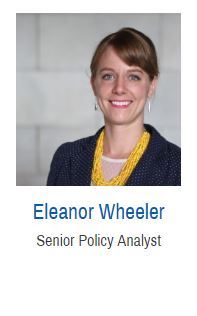
A misguided drug testing program aimed at curbing drug abuse is leaving low-income families caught in the middle. Arkansas began drug screening and testing TANF (Temporary Assistance for Needy Families) applicants in 2015, and expanded the program and made it permanent in 2017. Since then, the program has failed entirely in its supposed goal of connecting potential patients to drug abuse programs. Instead, it has added wasteful red tape to the TANF application process and stigmatized Arkansas kids and families just for being poor.
Since April 2016, just 12 out of over 7,000 TANF applicants took drug tests. Of those, only four tested positive. That is a “capture” rate of .0006 percent. Of that miniscule group who tested positive, zero were referred to treatment or counseling. Other states that have tried this approach have had similarly dismal results.
What we know (which is even more clear now because of the opioid epidemic) is that the consequences of drug abuse do not discriminate. A person is susceptible to drug dependence whether they are rich or poor. All socioeconomic classes are vulnerable to this public health issue. It is a mistake with substantial public health consequences to characterize low-income groups as the only people who suffer from drug abuse problems.
It is also a mistake to characterize drug dependence as a moral failing that could be corrected by punitive measures like taking away TANF or other supports. Drug abuse is a medical problem that requires medical treatment, and we should take actions to treat people with drug abuse issues as patients first and not criminals.
The time, energy, and manpower used to propel this program would be better spent on helping people find employment or ensuring that they have the necessary supportive services they need to join the workforce. The “cost” reported from the Arkansas department of Workforce Services only includes the price of the drug tests themselves (about $500 total since April 2016). That doesn’t include the administrative burden involved and the cost for the upfront drug screening (there were 3,430 applicants screened in 2017). Therefore, this reported “cost” likely understates the real price tag of the program. Given the low rate of positives, any money spent on screening is not worth the cost.
However, the dollars wasted on this program are by far secondary in scale to the harm done to our sense of community. The philosophy behind programs that drug test poor people is painfully clear. This program and others like it are built on an attitude of skepticism, mistrust, and disregard for fellow citizens just because they have fewer resources. The real test is of our own prejudice against poor people, and Arkansas has failed.

